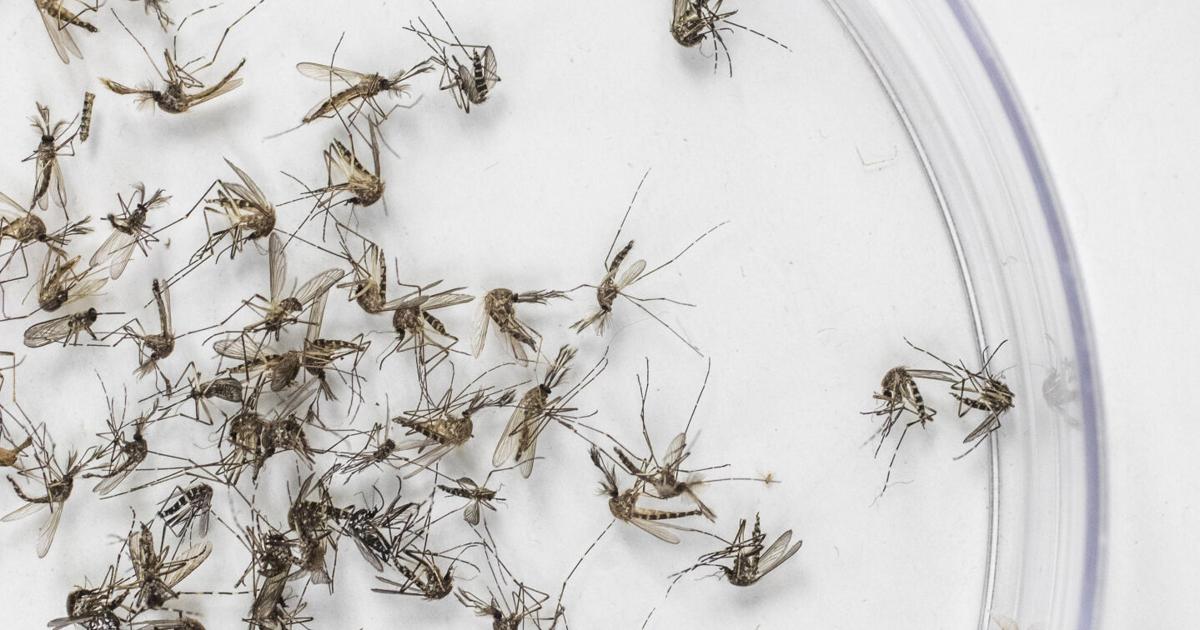
South Carolina summers are hot, humid and wet: prime conditions for pesky mosquitoes on the hunt for their next target.
During a summer walk in the evening near the water, one person in a group might return with dozens of mosquito bites, while the others remain untouched.
However, pinpointing a single reason why these blood-sucking insects prefer some humans over others is nearly impossible, researchers have concluded.
Is blood type a factor? The research is mixed. Are sweaty bodies attractive to mosquitoes? Yes. How about drinking a few beers? One study shows that beer consumption plays a role. Pregnancy does, too.
The answer isn’t simple.
“There’s 100 different reasons and you don’t get a chance to ask the mosquito, ‘Why?'” said Andrew Pierson, an entomologist with Charleston County’s Mosquito Control program.
The main factor that cues mosquitoes to fly towards a stimulus is the detection of carbon dioxide exhaled by humans, he said.
He provided an analogy. If someone is walking down the street and smells freshly baked goods, they will start looking for a bakery. The same is true for mosquitoes. When they sense carbon dioxide, they search for the source.
This explains one reason why mosquitoes are attracted to people who are pregnant. Research shows pregnant women exhale nearly 20 percent more carbon dioxide than their non-pregnant counterparts. They also have higher body temperatures, which can also attracts mosquitoes.
For those who have been mosquito magnets their entire lives, one contributing factor comes down to the complex chemical makeup of the skin.
Melissa Nolan, director of the University of South Carolina Institute for Infectious Disease Translational Research, said the skin’s microbiome, made up of bacteria, viruses and fungi, releases a scent. Some scents are more attractive to mosquitoes than others, she said.
It’s unlikely two individuals have the same exact acids in the same amounts on their skin, according to researchers from Rockefeller University in New York. They conducted a study looking at skin odorants that are most alluring to mosquitoes. The study, which was published in 2022, collected human skin odor samples on nylon stockings from more than 60 individuals over a three-year period.
Researchers determined the samples most attractive to mosquitoes had higher levels of carboxylic acids, a type of organic compound that is produced naturally on the skin. This research suggests skin odor is the primary reason for mosquito attraction because temperature and carbon dioxide were held at constant levels throughout the experiment.
The study proposed that people who are highly attractive to mosquitoes is a fixed trait, meaning it won’t change over time even if environmental factors do.
Environmental factors do play a role. If a person stands alone in the middle of a field where mosquitoes are present, they will likely be bitten regardless of their skin’s makeup because they are the only option available for them, according to the study.
Nolan said the reason mosquitoes go after certain people is likely a combination of factors.
She said some studies show O-positive blood is more attractive than other types, while other research discovered that isn’t true. She said it’s possible blood type could be a factor, but it’s likely the combination of blood type and other factors.
Another reason could be that you’re sweaty, Nolan said.
“Most mosquitoes love an organic-y, kind of stinky smell,” Nolan said. “If you’re working out, you’re more likely to sweat and give off those odors that they really like.”
To fend off the pesky insects, Pierson suggested using repellants registered with the Environmental Protection Agency that contain DEET, picaridin or lemon eucalyptus oil. To keep mosquitoes out of the backyard, tip and toss any vessels that hold water, like a bird bath or kids’ toys, because they end up breeding grounds for mosquitoes, said Nolan.
She recommends using a mosquito fogger found at home improvement stores ahead of hosting a summer barbecue in the backyard.
(Except for the headline, this story has not been edited by PostX News and is published from a syndicated feed.)

